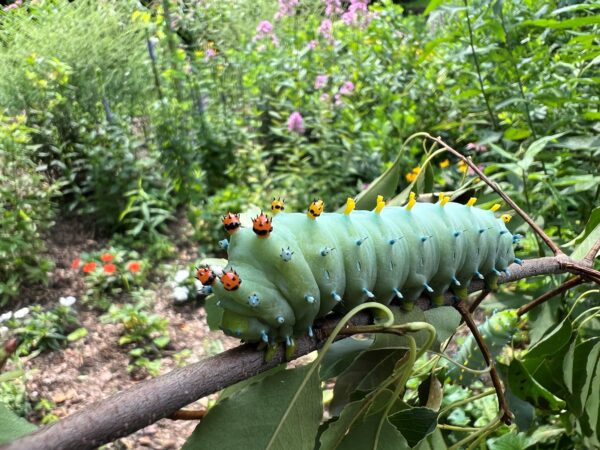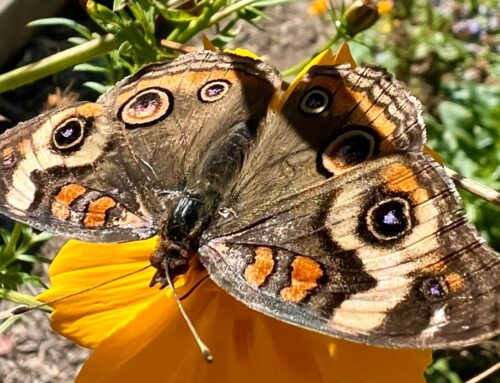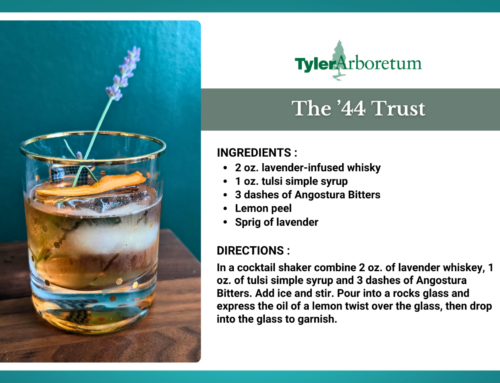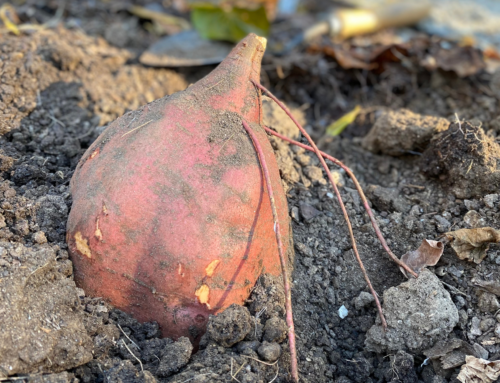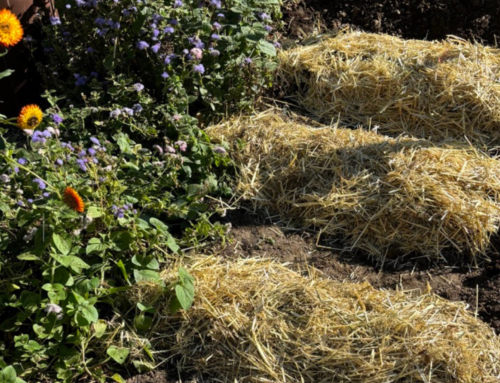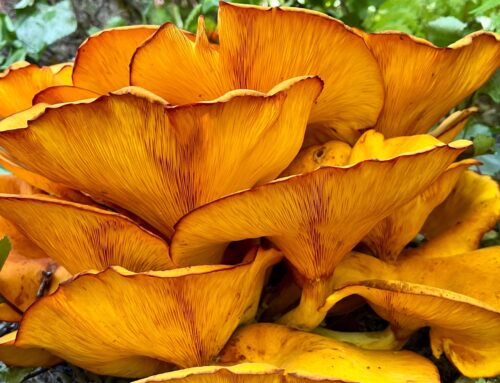Our first season without having a net covering the structure in the Pollinator Preserve has been one of discovery, learning and encouragement.
Not putting up the net may sound easy, but it took quite a bit of planning to ensure this beloved exhibit continued to attract and educate visitors while also being more ecologically sound.
First, a brief look back to previous years and understanding why we felt this change was so necessary.
Beginning in 2004, Tyler created a one-year exhibit called The Butterfly House. Customized black netting kept butterflies housed within a large structure while serving to keep the insects that may harm them on the outside. For about seven weeks, Volunteer guides led visitors through the enclosed space where butterflies lived out their lives. This enclosed exhibit was so popular that it continued through 2022, keeping the same focus for 19 years.
You’ve heard the saying, ‘You can’t improve on Mother Nature’
When we returned to Tyler in June of 2020 following a three-month absence due to COVID, we were amazed at this space. The netting could not go up that year as enclosed spaces weren’t permitted. Yes, the weeds were high, but the insects were flying freely and the sunlight actually reached the interior! For the first time the common milkweed plants were flowering, now exposed to sufficient sunshine. Flowers and insects filled the space unlike ever before. We had better insight into understanding the damage caused by the netting because it blocked 50% of the sunlight along with creating a barrier for insects. Realizing we were causing harm in this artificial environment, we began planning for changes to make this garden more natural and to offer many more opportunities for engagement with Tyler’s members and visitors.
For further details on the impact of the netting, please see https://tylerarboretum.org/turning-a-house-into-a-home/
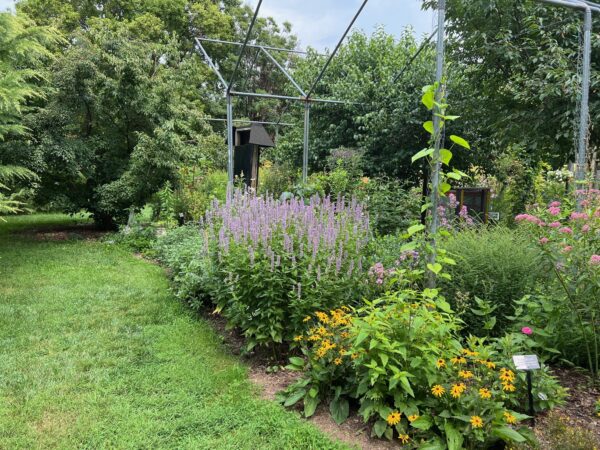
Open sightlines allowed a better experience for all, including the insects!
This is what we heard from our visitors in 2023:
“It is so bright and full of activity now!”
“It looks so much bigger this year and there is so much color everywhere!”
“The new signage is so helpful and placed right next to the action.”
“There is so much more to see now and I love watching the insects.”
“I never knew so much was happening in the garden and can’t wait to add some native plants to my home garden.”
“It looks so natural now. I can see so much in front of me, and now I can see when the hummingbirds are on the other side, and when the butterflies are fluttering up front. I love the views!”
“We love coming to Tyler because it is such a natural place – until we got to the Butterfly House that had the netting over it. Butterflies were trapped inside, usually on the ceiling. The plants suffered from a lack of light and aphids were consuming so many plants. It was anything but natural! We love the changes!”
The Pollinator Preserve will remain an open garden in 2024!
We appreciate the enthusiastic support, excitement, and encouragement from everyone who stops by. We especially enjoy helping our visitors understand the interactions between plants and insects and between insects and other insects. The season is now six months long, and brings opportunities for learning and sharing. Don’t forget to add some native plants to your garden in 2024. You will be amazed at what you might discover in your garden!
If you would like to volunteer as a Pollinator Preserve Guide or Gardener, contact Tyler’s Volunteer Coordinator Lexi Fowler. Lexi can be reached at afowler@tylerarboretum.org
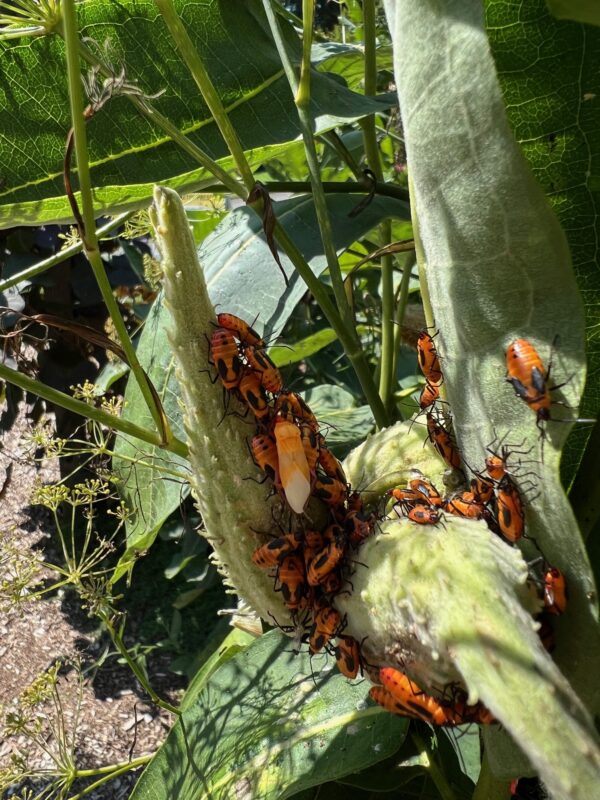
The milkweed plants and, in turn, the milkweed bugs, thrived without a net at the Pollinator Preserve.
The netting did not go up in 2023
In the fall of 2022, we were ready to present a more ecologically sound garden and environment in the coming year. Dozens of new native plant species were now flourishing, each selected for a specific purpose. By early May, this light-filled garden attracted insects and birds that could navigate freely, no longer inhibited by barriers. Beetles, butterflies, flies and wasps were using the native plants as nature intended, easily spotted along with many other visiting insects such as katydids, hummingbird moths, and praying mantis. Lady beetles and green lacewing insects consumed the aphids and our milkweed was healthy.
The access to the gardens was easier, and the sightlines were improved. Additional signage explained why the net was no longer up, and provided details on plant insect activity. Our team was ready to share this space with our visitors and we started with busloads of students coming to Tyler for field trips. Throughout the season, our visitation increased as people felt free to roam as they pleased rather than entering a dark, confined space, unsure what might inside.
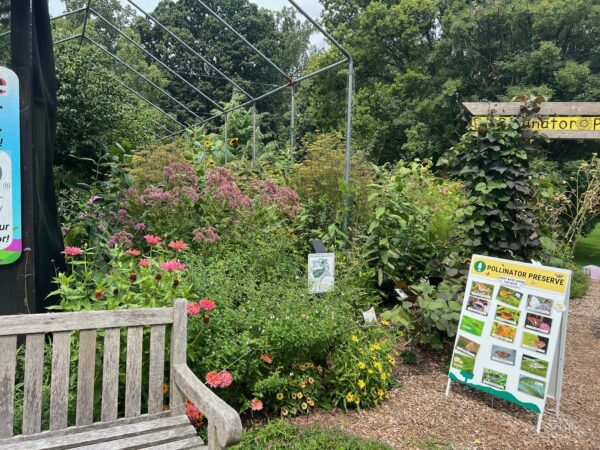
Improved signage provided a more engaging experience for visitors.
